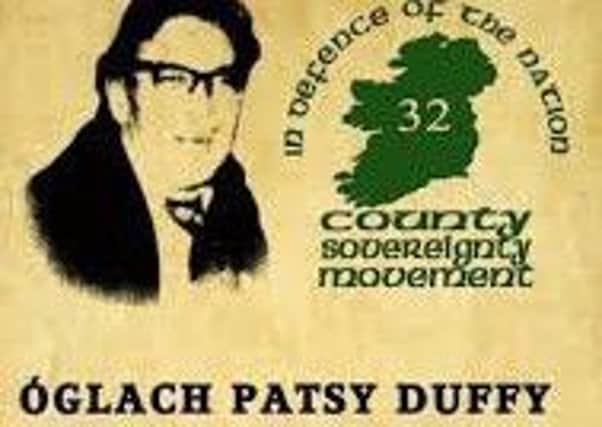Fresh inquest for IRA man shot ‘on active service’


Patrick (Patsy) Duffy was about to check on a number of IRA weapons stored at a house in the Brandywell area when he was killed by soldiers – said to have operating in plain clothes.
The 50-year-old was struck by up to 14 bullets during the military operation on November 24, 1978.
Advertisement
Hide AdAdvertisement
Hide AdIt was reported that his daughter and grandchild were waiting in a car outside the Maureen Avenue property at the time of the shooting.
During the original inquest in 1980, two soldiers involved submitted statements of evidence in which they admitted being responsible.
However, neither of the two soldiers gave oral evidence, or were subjected to cross-examination by lawyers acting for the Duffy family. The inquest concluded with an open verdict.
An application for a fresh inquest was made to Attorney General John Larkin in November 2015 by the dead man’s family.
Advertisement
Hide AdAdvertisement
Hide AdA granite plaque erected in Maureen Avenue, close to its junction with Abercorn Road, states: “In proud and loving memory of Vol Patsy Duffy. Killed on active service, 24 November 1978.”
The Derry Journal report quotes Mr Larkin announcing a new inquest by saying: “At its core, there is in this case the death by shooting of an unarmed man by, it seems, two soldiers who may have been dressed as civilians.
“In common with the practice at the time neither of those soldiers gave evidence at the inquest. There does not, on the materials available to me, appear to be any objective justification for shooting Mr Duffy.”
Mr Larkin added: “I consider that there is at present the potential for military evidence to be considered now that was not previously available.”
Advertisement
Hide AdAdvertisement
Hide AdThe Duffy family’s solicitor, Patricia Coyle, said the soldiers involved could be compelled to face cross-examination, and added: “It is considered that Mr Duffy’s killing is one of the earliest examples of the use of lethal force by the British army in Northern Ireland when an arrest was possible and such force was not necessary.“
Ms Coyle also said that a bullet removed from Mr Duffy could be subjected to modern ballistic analysis – enabling investigators to identify the weapon and possibly the soldier responsible.